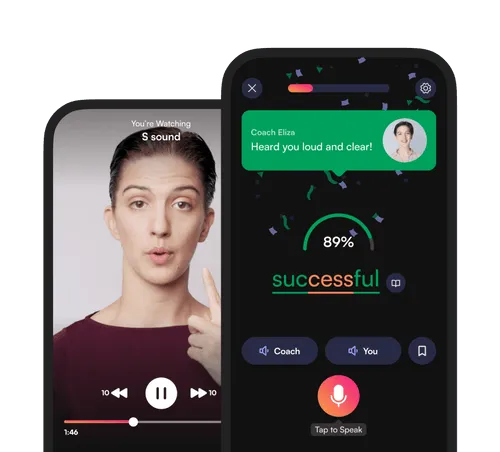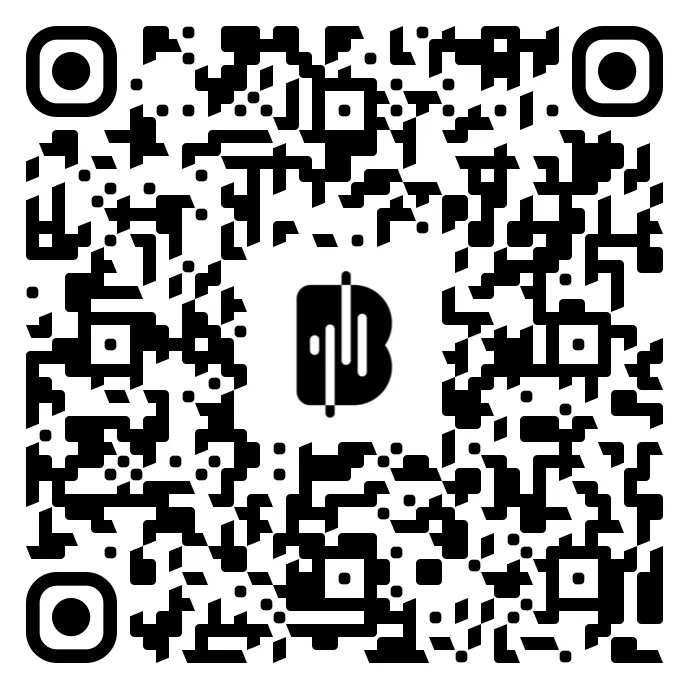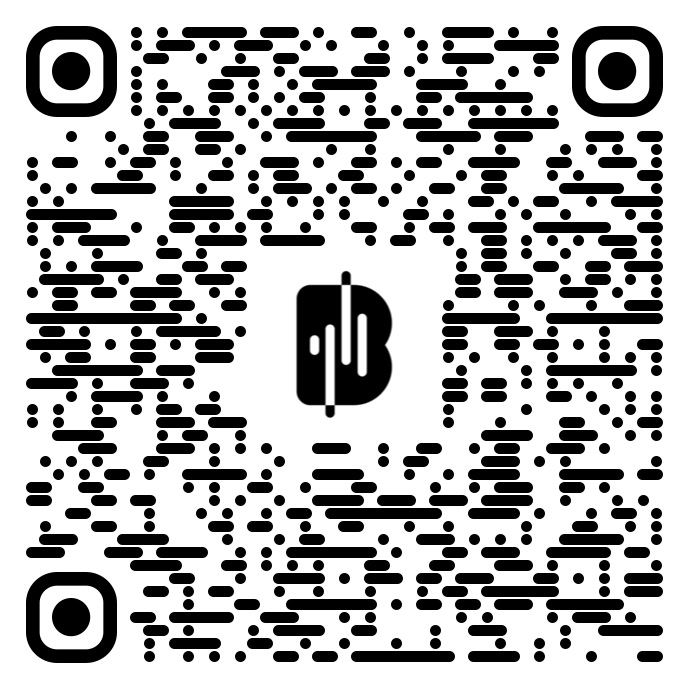Congratulations! You've landed an interview, which means you're one step closer to getting the job. Think of job interviews as your chance to showcase your unique skills and impress a panel of judges.
Unlike everyday conversations with peers and colleagues, job interviews require a specific style of communication with potential employers. It's imperative to be thoughtful and thorough about what you say, how you say it, and the impressions you give.
Here are all the tips you need to make a lasting impression, ace your interview, and land that dream job.
1. Understand Common Job Interview Vocabulary While each interview is unique, job interviews in America do tend to follow a general structure and touch on certain topics. With that, there are certain terms that you're almost guaranteed to encounter.
Make sure you're confident and comfortable using common job interview phrases . You want your efforts to be focused on showcasing your greatest strengths and building a rapport, after all, not on deciphering language and terminology you haven't encountered before.
If in your preparations you encounter terms that you're unsure of how to pronounce, BoldVoice is your best friend. Using the "practice your text" resource, you can type in any term or phrase you're struggling with for immediate pronunciation feedback. You can even rehearse entire custom interview responses!
2. Research the Company If your interviewer can tell that you don't know very much about the company you're applying to, it will be fairly obvious that you're not the most dedicated candidate on the list. Preparedness goes a long way, and informing yourself on your potential future workplace is a key component of that prep.
Make deliberate efforts to understand the company’s mission, values, and core principles. You should also look into their products, services, social media, website, customer reviews, and even the humans behind the brand.
If you know your interviewer by name, you can search for background information on professional platforms like LinkedIn. However, be careful. It's inappropriate to bring up their career path during your interview, and even connecting on LinkedIn may be perceived poorly. However, poking around on the professional platform might give you a glimpse into how the company and their employees operate.
3. Practice Your Accent and Pronunciation Employers value skills and experience, but clear communication is equally important . Clear communication, especially with a comprehensible accent, makes your answers more understandable and positively received.
For non-native English speakers, working on reducing or eliminating an accent can prevent misunderstandings and ensure your answers align with the interviewer’s expectations.
Few things can interrupt the flow of a job interview like a constant "I'm sorry, what did you say?" If you know that your spoken English is a point of weakness for you, this is the time to work on it. Especially important for interviews in fields like customer service where communication is imperative, speaking clearly and confidently in your interview can make all the difference.
Take your free accent assessment Get to know your pronunciation level and get 7 days of lessons for free on the BoldVoice app.
Start Free Trial
4. Rehearse Common Interview Questions While you should prepare for anything, there are some standard common job interview questions that you can – and should – expect to encounter throughout the interview process.
Here are some of the most common interview questions asked in the US:
What are your strengths and weaknesses related to this role? Why do you want to work for this company? Where do you see yourself in five years? Tell me about a time...
As you practice English for job interviews, prepare answers for these common questions so you can ace them in the moment. For those "tell me about a time..." questions, be sure to brainstorm some example situations from your work experience and personal life that might showcase the skills that make you a good fit for the role.
You can even conduct mock interviews with friends and record these sessions to review your performance and identify areas for improvement.
5. Clear and Concise Response When it comes to communication, more isn't always better. In fact, when you speak too much and go off on tangents in an interview, you're likely doing more harm than good.
An interviewer is looking for all sorts of things from a candidate. What you say matters, of course, but how you say it is just as important. Understanding what's important and what isn't, and knowing how to effectively relay the important information, is an attractive skill in a candidate. Your responses during an interview are the perfect opportunity to showcase your skills in that regard.
For the best responses, use the STAR (situation, task, action, result) method. A powerful way to structure your responses to behavioral questions, the STAR method helps you keep things concise and to-the-point.
6. Focus on Non-Verbal Communication You might have stellar answers and impressive qualifications, but you may not express your thoughts well if you neglect nonverbal communication. Particularly in the United States, body language can make or break how someone perceives you, even if it's not intentional.
For example, you must maintain a confident posture and steady eye contact, and use appropriate gestures to emphasize certain points. Small actions, like nodding in agreement or leaning slightly forward can show your attentiveness and your interest.
Using nonverbal communication to your advantage showcases your professionalism and readiness for the role. As often as you can, watch professional and native speakers and practice their posture and gestures on your own until you get them right.
7. Speak Slowly This can get tricky because you don’t want to speak too fast or too slow, but rather, find the perfect medium. When you speak at the right pace, you ensure that your message is conveyed effectively and also minimize the likelihood of making errors.
Take deep breaths and frequent pauses at appropriate intervals just so you can think your words through. Remember to articulate your words carefully so that they don’t run into each other and you don't come off as nervous.
Remember, you want to be intentional both about what you say and how you say it. Whether you're discussing your previous job experience, your time management skills, your career goals, or anything else, feel free to take a pause to consider your response – both the content and execution. This prevents you from stammering through a messy response.
When you are ready to respond, do so with confidence and clarity. Speak at a clear and calm speed and showcase your superior communication skills.
8. Prepare Your Questions In just about any English job interview, there will come a point when the interviewer asks if you have any questions for them. Make sure that the answer is yes.
This is an opportunity for you to showcase your interest, preparedness, and intelligence. Prepare by crafting thoughtful questions that are unique to the company in question, the role you're applying for, and your situation as a potential future employee.
You might consider asking about company culture, management styles, how the role could evolve, or technologies used (note: this is usually not the time to discuss salary expectations). Asking the right questions demonstrates your enthusiasm and also helps you gather valuable information to determine if the role is the right fit for you.
9. Utilize Technology in your Preparation Use technology like BoldVoice to improve your English skills and prepare for English interviews. BoldVoice is a one-stop solution and AI-powered language app designed for efficient accent refinement, and it can be the perfect training tool as you rehearse your interview questions and responses.
The app acts like a personal coach, offering personalized feedback that corrects you on the spot so you can immediately refine your errors. You’ll also get access to more possible interview questions and find targeted practice exercises like role-play scenarios that allow you to rehearse real interview situations on your own.
Enjoy a seven-day free trial and access all of BoldVoice’s advanced features when you sign up today.
10. Record and Review Your Practice Sessions Imagine stepping onto a grand stage, the lights bright and the audience attentive, hanging on your every word. This is what a job interview can feel like—a performance where every gesture, inflection, and pause can make or break your chances.
If public speaking isn't your thing, calm your nerves through preparation. Record your interview practice sessions and see how your interviewers will see you when you interact with them. As you replay the footage, focus on your body language, tone, and speech pace.
How often did you stutter? Are you stiff? Did you appear fidgety? Did you correctly answer questions? And more importantly, do you think you are putting in your best shot as the perfect candidate would?
Identify moments where you shine and areas where you faltered and can improve upon. The more you review these sessions, the better you get.
11. Minimize Filler Words Fillers are those pesky words like “um,” “uh,” and “you know” that often sneak into our speech, especially when we’re thinking on our feet. They can make you seem unsure or less confident, which isn’t ideal in the context of a job interview.
To tackle fillers, start by becoming aware of when and how often you use them. You can do this by using the BoldVoice app to record yourself during practice sessions and allowing the app to analyze your speech.
When you feel the urge to use filler words, try to pause instead. It might feel awkward at first, but a brief pause is much better than the “um” that tries to fill the gap.
Think of it as giving yourself a moment to gather your thoughts rather than filling the air with noise. For instance, instead of saying, “I, um, handled the project, like, really well,” you could pause before confidently saying “I successfully managed the project.”
12. Familiarize Yourself with Industry-Specific Terms In IT roles , you might need to discuss routers and APIs. In the restaurant industry you'll need to know words about dietary restrictions and industry-specific jargon, like "eighty-six." Healthcare professionals should know terms like EHR (Electronic Health Records), HIPAA compliance, and telemedicine.
Using industry terms proves that you are a professional who is knowledgeable in their field. We understand that the list of industry-related jargon is infinite, and you may not know them all at once. However, having a strong base is essential if you're looking to make a good impression on your interviewer.
If your interviewer mentions a term you're unfamiliar with, don't panic. Simply ask them to clarify their meaning and you can add that new word to your professional lexicon!
13. Use Positive Language Frame your responses positively, even when you’re discussing challenges or failures. Realistically, no employer wants to hire employees with an “impossible to achieve” mindset.
When discussing past setbacks, emphasize what you learned and how you improved. Similarly, when talking about areas for growth, mention any training or self-study you’ve pursued to enhance your skills.
In summary, use negative experiences to sell yourself to the interviewer. Everyone has negative experiences, and pretending otherwise will be easy to see through. Instead, turn those negatives into positives! For example, instead of saying, "I have no experience in this area," you could say, "I am eager to learn and bring my existing skills to this new challenge."
14. Work on Your Listening Skills Good communication is a two-way street—speaking and listening. As you work on speaking, also practice active listening, which involves more than just hearing words. Engage with your interviewer by nodding when necessary, making affirming sounds, and summarizing what the interviewer has said.
Listening can be even more difficult for non-native speakers interviewing with natives who speak faster and more fluently. This is why you must work on building your listening skills.
You can practice by listening to English podcasts, watching TED shows, or seeing your favorite movies and summarizing what you have heard.
Listen to BoldVoice coaches Eliza and Josh as they discuss how to use body language and affirmations to demonstrate active listening, showing your conversation partner that you're engaged in the discussion:
15. Understand Cultural Norms Research typical interview etiquette in the U.S., including formality, attire, boundaries, and conversational norms (you're off to a great start with this article!).
For example, in the U.S. workplace , equality, mutual respect, and matching company culture are big deals. However, you must learn to balance professionalism and friendliness so you don't come off as rude or cross personal boundaries.
Other norms you can look out for may include not addressing your interviewer by their first name unless they permit you to, understanding the dress code, prioritizing punctuality, and other things of that nature.
Ace Your Interview with BoldVoice The job market is stiff and competitive, especially for foreigners living in the U.S. You must be able to showcase your best side and make an impactful impression through just a single conversation, which is no simple task.
The ability to communicate well is an undeniable advantage if you want to impress your interviewer and ultimately thrive professionally. This is why you should never attend an interview in English without refining your communication.
The 15 tips we've covered are designed to help you learn how to prepare for a job interview in English. Each tip builds on the others to improve how you highlight your strengths, handle tough questions, and connect with your interviewer.
To further improve your English communication skills, use the BoldVoice app . The earlier you get started, the closer you get to landing your dream job–so get started on your free 7 day trial now!









